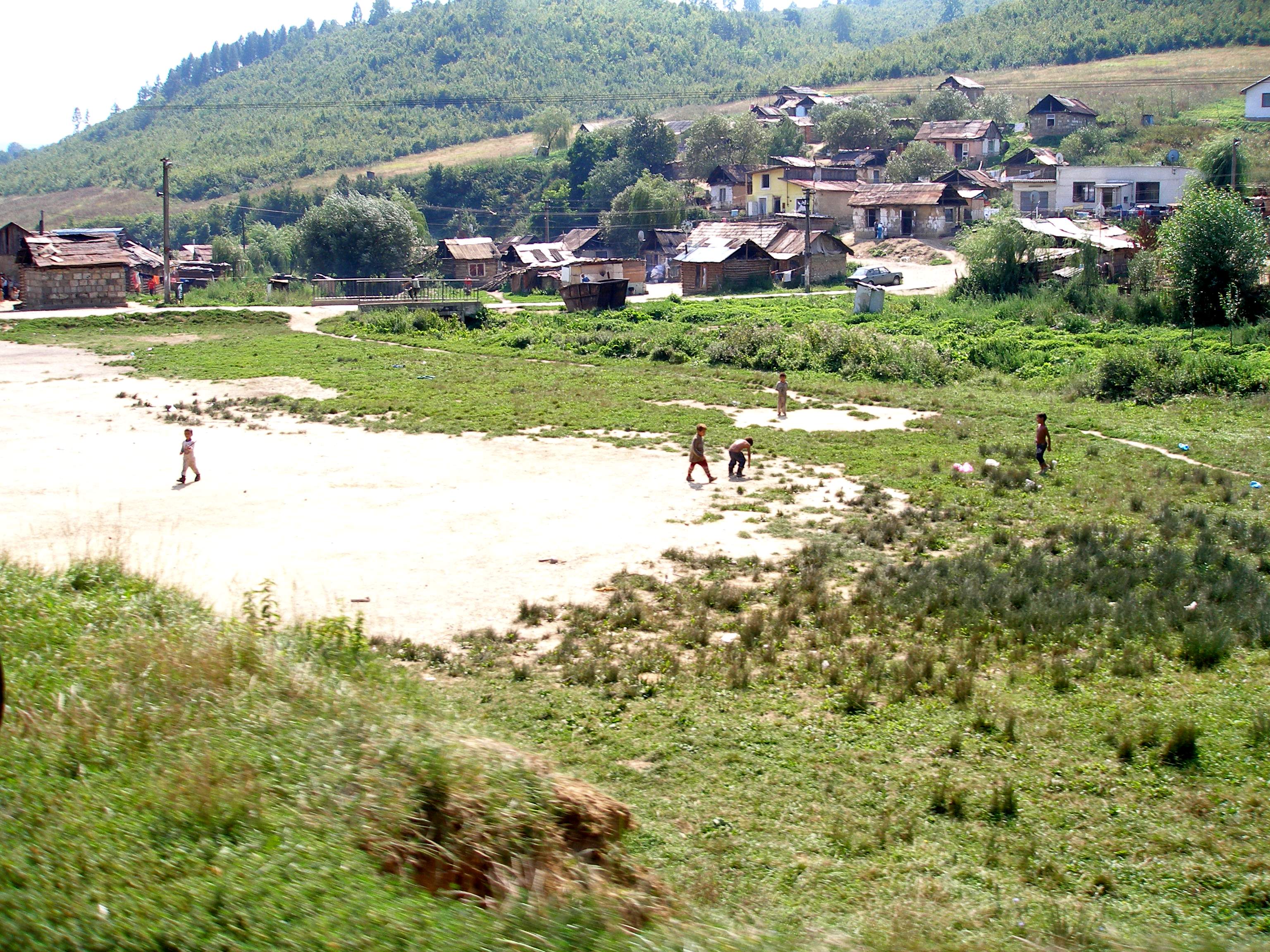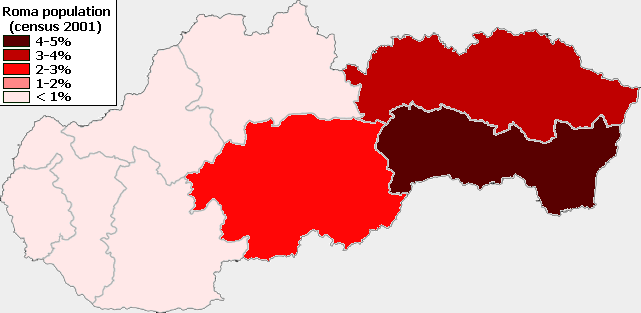Romani people in Slovakia on:
[Wikipedia]
[Google]
[Amazon]
According to the last census from 2021, there were 67,179 persons counted as


 The first record of sightings of small groups of Romani within the area of present-day Slovakia are from 1322 AD, when the region was part of the
The first record of sightings of small groups of Romani within the area of present-day Slovakia are from 1322 AD, when the region was part of the
The largest archive of gypsy music on the Internet - 100,000 gypsy songs
CNN: Slovakia seeks help on Roma issue
The New York Times, January 8, 2007 {{commons category Ethnic groups articles needing expert attention
Romani people
The Romani (also spelled Romany or Rromani , ), colloquially known as the Roma, are an Indo-Aryan peoples, Indo-Aryan ethnic group, traditionally nomadic Itinerant groups in Europe, itinerants. They live in Europe and Anatolia, and have Ro ...
in Slovakia
Slovakia (; sk, Slovensko ), officially the Slovak Republic ( sk, Slovenská republika, links=no ), is a landlocked country in Central Europe. It is bordered by Poland to the north, Ukraine to the east, Hungary to the south, Austria to the ...
, or 1,23% of the population.
History
Migration to Slovakia
Kingdom of Hungary
The Kingdom of Hungary was a monarchy in Central Europe that existed for nearly a millennium, from the Middle Ages into the 20th century. The Principality of Hungary emerged as a Christian kingdom upon the Coronation of the Hungarian monarch, c ...
. Major waves of Romani nomads were recorded from 1417 onwards. In 1423 they received a decree from the Hungarian king Sigismund of Luxemburg
Sigismund of Luxembourg (15 February 1368 – 9 December 1437) was a monarch as King of Hungary and Croatia ('' jure uxoris'') from 1387, King of Germany from 1410, King of Bohemia from 1419, and Holy Roman Emperor from 1433 until his deat ...
at Szepes Castle, granting them Europe-wide right of passage and the right to settle. They proved to be useful metal workers for the royal armies fighting the Turks.
Through the ensuing centuries, whilst in western and central Europe Romani were treated violently and often expelled, the Hungarian Kingdom and Habsburg Monarchy in general provided a tolerant and stable safe-haven for the Romani community. In the 18th century, Joseph II
Joseph II (German: Josef Benedikt Anton Michael Adam; English: ''Joseph Benedict Anthony Michael Adam''; 13 March 1741 – 20 February 1790) was Holy Roman Emperor from August 1765 and sole ruler of the Habsburg lands from November 29, 1780 un ...
of the house of Habsburg attempted to 'civilize' the Romani, for example by prohibiting their dress and customs and educating them. However these efforts generally failed.
20th century
After the repressive Romani policies of the first Czechoslovak Republic (1918-1939), the communist government of 1948-1989 attempted to integrate the Romani into the majority population through obligatory education and employment, and the formation of Romani organizations. The nomadic way of life was banned in 1958. Parts of the Romani population were also transferred from Slovakia into the country's Czech regions. Though these policies were partly successful, after the 1989 Velvet Revolution, the Romani have once again found themselves on the margins of the society. On the one hand, there is a generous social system, but the system fails to effectively integrate them into the mainstream society.Discrimination in education
Roma people suffer serious discrimination in Slovakia. Roma children are segregated in school and do not receive the level of education as Slovak children. Some are sent to schools for children with mild mental disabilities. As a result, their attainment level is far below average. Amnesty International's report "Unfulfilled promises: Failing to end segregation of Roma pupils in Slovakia" describes the failure of the Slovak authorities to end the discrimination of Roma children on the grounds of their ethnicity in education. According to a 2012 United Nations Development Programme survey, around 43 per cent of Roma in mainstream schools attended ethnically segregated classes.Forced sterilisation
A human rights fact finding mission found widespread violations of Romani women's human rights including forced sterilisations, racially discriminatory access to health care and physical and verbal abuse by medical staff amongst others. The report from 2003 states that there was a "clear and consistent patterns of health-care providers who disregarded the need for obtaining informed consent to sterilization and who failed to provide accurate and comprehensive reproductive health information to Romani patients."Crime
Roma are the victims of ethnically driven violence and crime in Slovakia. According to monitoring and reports provided by the European Roma Rights Center (ERRC) in 2013, racist violence, evictions, threats, and more subtle forms of discrimination have increased over the past two years in Slovakia. The ERRC considers the situation in Slovakia to be one of the worst in Europe, as of 2013.Social help
Romani people receive new housing from municipalities and regional administrations for free every year, however people complain that some of them end up being destroyed by Romani people themselves. After the destruction, in some cases it has happened that the residents receive new housing, without being criminally prosecuted for destroying state property.Public opinion
The 2019Pew Research
The Pew Research Center is a nonpartisan American think tank (referring to itself as a "fact tank") based in Washington, D.C.
It provides information on social issues, public opinion, and demographic trends shaping the United States and the ...
poll found that 76% of Slovaks held unfavorable views of Roma.
Notable Romani people living or born in the area of present-day Slovakia
*Vierka Berkyová
Vierka Berkyová (born 23 February 1991 in Lučenec, Czechoslovakia) is a Slovak musician, and the winner of the third season of Slovakia searching for a SuperStar in 2007. She is of Romani origin.
She and her family lived with the singer I ...
, a singer (1991–)
* Irena Bihariová, human rights activist (1980–)
* Panna Cinka
Panna Czinka ( hu, Czinka Panna, sk, Panna Cinková) (1711(?) – 1772) was a famous Hungarian- Romani violinist.
Czinka was born in Sajógömör, Hungary (modern-day Gemer, Slovakia) to a Romani family of musicians. Her father was a court ...
, a violinist (1711?–1772)
* Ondrej Rigo, a serial killer (1955–2022)
* Rytmus
Patrik Vrbovský (born 3 January 1977), better known by his stage name Rytmus, is a Slovak rapper, singer, songwriter, actor, and television personality.
Born in Kroměříž of Romani people, Romani descent, raised in Piešťany, Pieštany, Ryt ...
, a rapper (1977–)
See also
*Romani people in Czechoslovakia
After World War I, the Romani people in Czechoslovakia formed an ethnic community, living on the social periphery of the mainstream Czechoslovakian population.
First Republic
The state always focused on the Romani population not as a distinct ...
*Demographics of Slovakia
This article is about the demographic features of the population of Slovakia, including population density, ethnicity, education level, health of the populace, economic status, religious affiliations and other aspects of the population. The demo ...
*Luník IX
Luník IX is a borough (city ward) in the city of Košice, Slovakia, in the Košice II district. It is located in the western-central part of the city, surrounded by the boroughs of Pereš, Myslava, Barca, Juh and Západ.
Characteristics
...
*Romani people in Romania
Romani people (Roma; Romi, traditionally '' Țigani'', (often called "Gypsies" though this term is considered a slur) constitute one of Romania's largest minorities. According to the 2011 census, their number was 621.573 people or 3.3% of the ...
References
External links
The largest archive of gypsy music on the Internet - 100,000 gypsy songs
CNN: Slovakia seeks help on Roma issue
The New York Times, January 8, 2007 {{commons category Ethnic groups articles needing expert attention